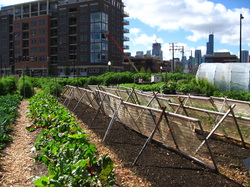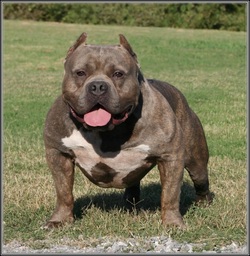 Harvesting crops in the city: easier than getting a trademark on a generic phrase.
Harvesting crops in the city: easier than getting a trademark on a generic phrase. These are the rules that apply to many for-profit, and even non-profit organizations. The name of the game is name recognition, with an underlying economic motivation of economic gain. Consumers recognize the symbol, attribute it to a single source, draw upon prior experiences with products/services bearing that symbol, purchase the product, and enjoy. Rinse and repeat a thousand times (or hopefully many more) and you get goodwill. The owner hopes that it will have exclusive ownership over the symbol so that consumers won’t choose a competitive product thinking it to be from the owner. Economics therefore plays a role at two levels. On the purchasing side, it embodies the intangible associations between the name and the source. On the sale side, it represents the desire to prevent others from creating the same association using a similar symbol.
This is exactly what happened recently to the organization that started the “Urban Homesteading” method of living. In 2007 and 2008, the Dervaes Institute (an organization founded by Jules Dervaes) applied to the USPTO to register the phrases “Urban Homesteading” and “Urban Homestead” for various educational and entertainment services pertaining to lessons on sustainable living, organic foods and gardening. Both marks were eventually allowed to register after a few rounds of rejections by the USPTO for reasons of descriptiveness (I can kind of see why).
 Bully dogs - a lot more muscular than trademark bullies. (Image source: http://www.kidsbeatsmt.com/)
Bully dogs - a lot more muscular than trademark bullies. (Image source: http://www.kidsbeatsmt.com/) One of these adherents in particular had a little fight in them, apparently deciding that the “Urban Homesteading” movement was much bigger than a flimsy trademark registration granted by the USPTO. Denver Urban Homesteading LLC maintained a Facebook page for its business starting in 2010 providing information about products sold at a farmer’s market and select urban homesteading skills. Refusing to take Facebook’s shutdown of their page lightly, the owner filed suit against Dervaes seeking to cancel the “Urban Homestead” mark on the grounds that it was bunk from the beginning (er, that’s the laymen’s term for “generic”).
With zeal, the Denver group presented a whole bevy of evidence including instances of generic use by competitors, general reference to the term as a movement and lifestyle, and (last but not certainly least), Dervaes’ own use of the “Urban Homesteading” mark as a generic word on the Institute’s own website (doh!) From this evidence, the court had no trouble concluding that “Urban Homesteading” suffered from the classic generic mark ailment of telling consumers “what it was” as opposed to “who it was”. Because the mark could no longer be attributed to a single source, the mark was deemed generic and no longer protectable as the exclusive mark of Dervaes Institute.
The Dervaes Institute had lost its attempt at a name land grab. It is difficult to have sympathy for the Institute, both because they themselves sowed the seeds of their own demise and because they should have apparently recognized the writing on the wall (which was there long before the group attempted to register a trademark for their beloved phrase). As the Electronic Frontier Foundation pointed out in a letter to Dervaes, “urban homesteading” was a term that had been in use since at least the 1970s to refer to strategies for revitalizing blighted areas at least partially through urban farming. These are the very ideas that Jules Dervaes promoted in his initial experiment during the 1970s and 80s. Doh!
It seems hard to fathom that a person who was so intricately familiar with (and even instrumental in founding) a movement under a name would think that the same could be protected as a trademark. Dervaes Institute was no slouch when it came to trademark protection, having the resources to launch a wide-scale campaign to strong-arm misusers of their mark.
So, long story short: Dervaes helped to coin a phrase that it may very well have exercised exclusive rights over and kept tight restrictions on if it had been disciplined early on in adoption and promotion of this phrase. Then again, using such a phrase for a movement where one of the tenets appears to be sustainable living to minimize reliance on for-profit, earth-harming activities seems a little counter-intuitive. If the goal was to rein in imposters offering training not based on the original “Urban Homesteading” model, there are better ways of doing that than simply pushing a single mark on potential licensees. Usage of a certification mark, publication of materials written by trusted leaders of the movement, or using an alternative mark with a well-formulated marketing campaign are all examples. But these are all slightly more difficult (i.e. more expensive) than just filing a trademark, getting the registration, and strong-arming people to honor your registration or else. Nevertheless, if it was that easy to get trademarks on common phrases, the world’s lexicon would be somewhat limited and language would seem a bit more robotic.
The lessons for trademark owners here are numerous. At the very least, don’t use your own mark generically, especially if you want to hold it over someone’s head like the sword of Damocles. And don’t bank on trademark protection for a phrase that you know has already been embraced as an insignia of a movement or lifestyle.


 RSS Feed
RSS Feed